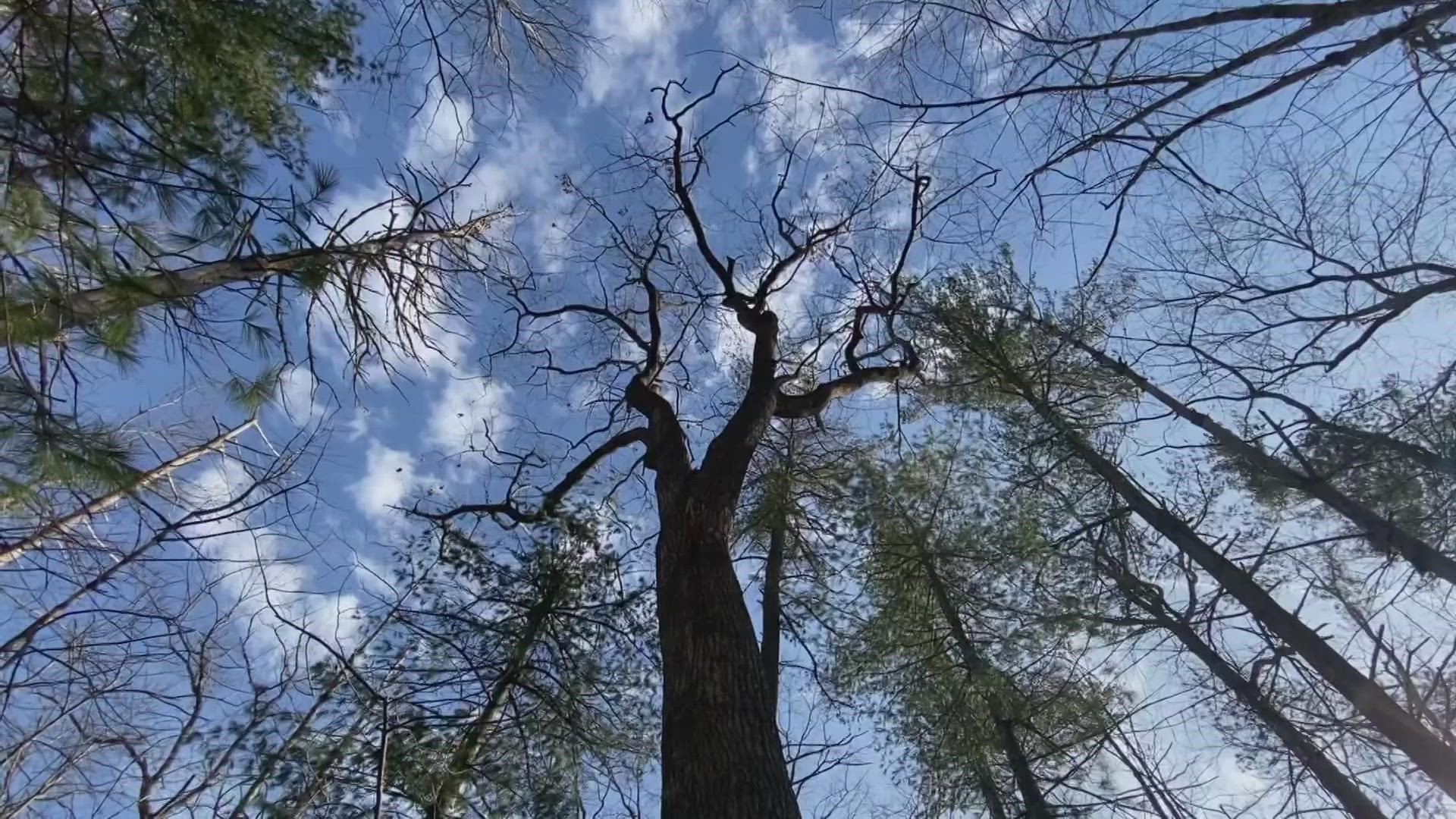PORTER, MAINE, Maine — Brent Day watches over his crew bringing ice-covered timber down a hillside into the machinery that will sort the wood into different sizes.
As the tree is stripped and cut, it's placed on a stack of hundreds.
It's a normal sight to see for Day, who is a third-generation logger at William A Day Jr & Sons Logging & Firewood. Each job his crew does is divided into seasons: winter cuts, fall, summer, and spring. All are dependent on the soil and tree makeup.
For winter cuts, having temperatures cold enough for the ground to freeze over is important, Day said.
"I don't know what else to say," Day said. "It's vital to everything we do."
As he watches his crew continue to work, he told NEWS CENTER Maine a winter job like this is continuously rare because this winter in Maine just hasn't been cold enough.
In fact, the site Day is overseeing isn't even a winter site. It's a summer sight, Day said, because all their winter sites are postponed until the soil freezes over more.
"It's been a sensitive season since October," Day said.
Day said that if you operate on a lot that's supposed to be done in the winter time, and the soil isn't totally frozen over, you can damage the ground and other root systems existing there.
"We haven't had a full week [of work] in about eight weeks. It really holds you back," Day said. "You don't want to destroy the piece of land you're working on. You want to do a quality job."
For now, Day said he will continue shuffling job sites until the temps drop more. He said the first weekend of February bringing frigid temperatures is a good start.
"I've been in Maine for 37 years, and it seems every winter is different," William Livingston, a University of Maine professor with a doctorate in plant pathology, said. "The climate is changing. If those negative impacts start happening, we're going to have problems. It's unprecedented."
Livingston said it's hard to tell if the majority of climate impacts on Maine forests will be positive or negative since Maine's forests are so diverse and will have winners and losers as temperatures increase, he said.
"As long as we take care of it, it will grow, and it will be in good shape. The Maine forest is a very resilient forest and something that is a real asset to the state."
Taking care of that asset, however, as climate change brings unpredictable consequences to the forest, makes managing the use of it hard for those in the Maine Forest Service.
State Forester Patty Cormier said her staff is continuing to monitor the fast-paced changes the forests are seeing.
"We used to be able to predict what we know about the future based on the past. We can only predict the future with the future now since we can't count on the trends of the past," Cormier said.
Cormier said statewide, especially in southern Maine, logging is difficult as the ground is behaving as it would in March or April, instead of January. Cormier said instead of ice, it's mud.
"The industry, it's in a tough time right now given the weather conditions that affect products going to mills. This is a perfect storm coming together," Cormier said.
Back in Porter at the site Day and his crew are working on, he said the future of logging in Maine may include similar gear to what is normally used in states south of Maine.
"We got to evolve with the trees, and if the warmer weather stays going then things got to change. Equipment has to be smaller. It has to be a lighter footprint. There are things we could do now to help us out," Day said. "I think it's educating everyone about it."

